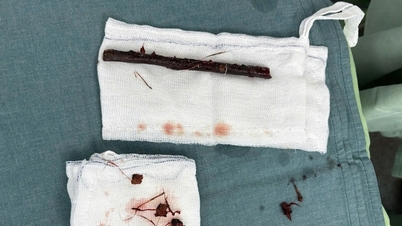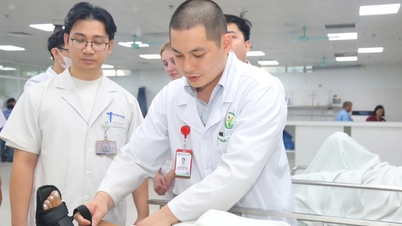Eating healthy, exercising, and getting bone health checks help prepare women for menopause.
Menopause and premenopause greatly affect women's health. Therefore, this stage needs to be prepared as soon as possible.
Eat healthy
An irregular or poor diet in young adulthood can aggravate some menopausal symptoms, making weight control more difficult. For example, eating a lot of refined carbohydrates and sugars causes blood sugar levels to fluctuate, leading to feelings of fatigue and irritability, as well as mental stress.
Women approaching menopause should reduce their intake of caffeine, alcohol, sugary and spicy foods in the evening. To reduce hot flashes and night sweats, women should consume a diet rich in soy and phytoestrogen-rich foods. Women should also keep a menopausal symptom diary to help find out which specific foods cause or aggravate symptoms, and then reduce their consumption or avoid them completely.

Middle-aged women practice yoga and meditation to improve their health. Photo: Goodtherapy
Do exercise
Menopause causes hormonal decline and changes in lifestyle, genetics, age, causing more weight gain. Excessive body fat, concentrated around the waist, increases the risk of developing certain diseases and also aggravates some menopausal conditions. Therefore, women should lose weight steadily through healthy eating and exercise, losing about 10% of body weight (equivalent to 4.5 kg a year), which can reduce hot flashes and night sweats during menopause.
Women don’t need to run marathons or lift heavy weights to lose weight, Pilates, yoga, tai chi and walking can be done, as long as they maintain a regular frequency. Women should also do resistance training, building muscles that support joints to reduce insulin resistance that causes diabetes, maintain metabolism and fat burning ability, and increase cardiovascular health.
Bone health check
When entering menopause, estrogen levels decrease; osteoporosis, fragile bones and the risk of fractures are always present. Therefore, women should pay attention to bone health when approaching menopause, have a diet rich in calcium and vitamin D. The minimum diet is 600 mg of calcium a day, which can come from foods such as yogurt, milk, cheese, green leafy vegetables such as kale, collard greens, spinach, tofu. Food sources rich in vitamin D include fish oil, eggs.
Menopause is not a disease, but a natural process of the body, so there is no recommended treatment. However, women should see a doctor if they experience symptoms that affect their physical, emotional, and mental health. Women should not worry too much about menopause, but should gradually adapt to the changes in their body during this period.
Chile (According to Channel News Asia )
Source link



![[Photo] Solemn opening of the 12th Military Party Congress for the 2025-2030 term](https://vphoto.vietnam.vn/thumb/1200x675/vietnam/resource/IMAGE/2025/9/30/2cd383b3130d41a1a4b5ace0d5eb989d)
![[Photo] The 1st Congress of Phu Tho Provincial Party Committee, term 2025-2030](https://vphoto.vietnam.vn/thumb/1200x675/vietnam/resource/IMAGE/2025/9/30/1507da06216649bba8a1ce6251816820)
![[Photo] General Secretary To Lam, Secretary of the Central Military Commission attends the 12th Party Congress of the Army](https://vphoto.vietnam.vn/thumb/1200x675/vietnam/resource/IMAGE/2025/9/30/9b63aaa37ddb472ead84e3870a8ae825)
![[Photo] Panorama of the cable-stayed bridge, the final bottleneck of the Ben Luc-Long Thanh expressway](https://vphoto.vietnam.vn/thumb/1200x675/vietnam/resource/IMAGE/2025/9/30/391fdf21025541d6b2f092e49a17243f)
![[Photo] President Luong Cuong receives President of the Cuban National Assembly Esteban Lazo Hernandez](https://vphoto.vietnam.vn/thumb/1200x675/vietnam/resource/IMAGE/2025/9/30/4d38932911c24f6ea1936252bd5427fa)






























































































Comment (0)